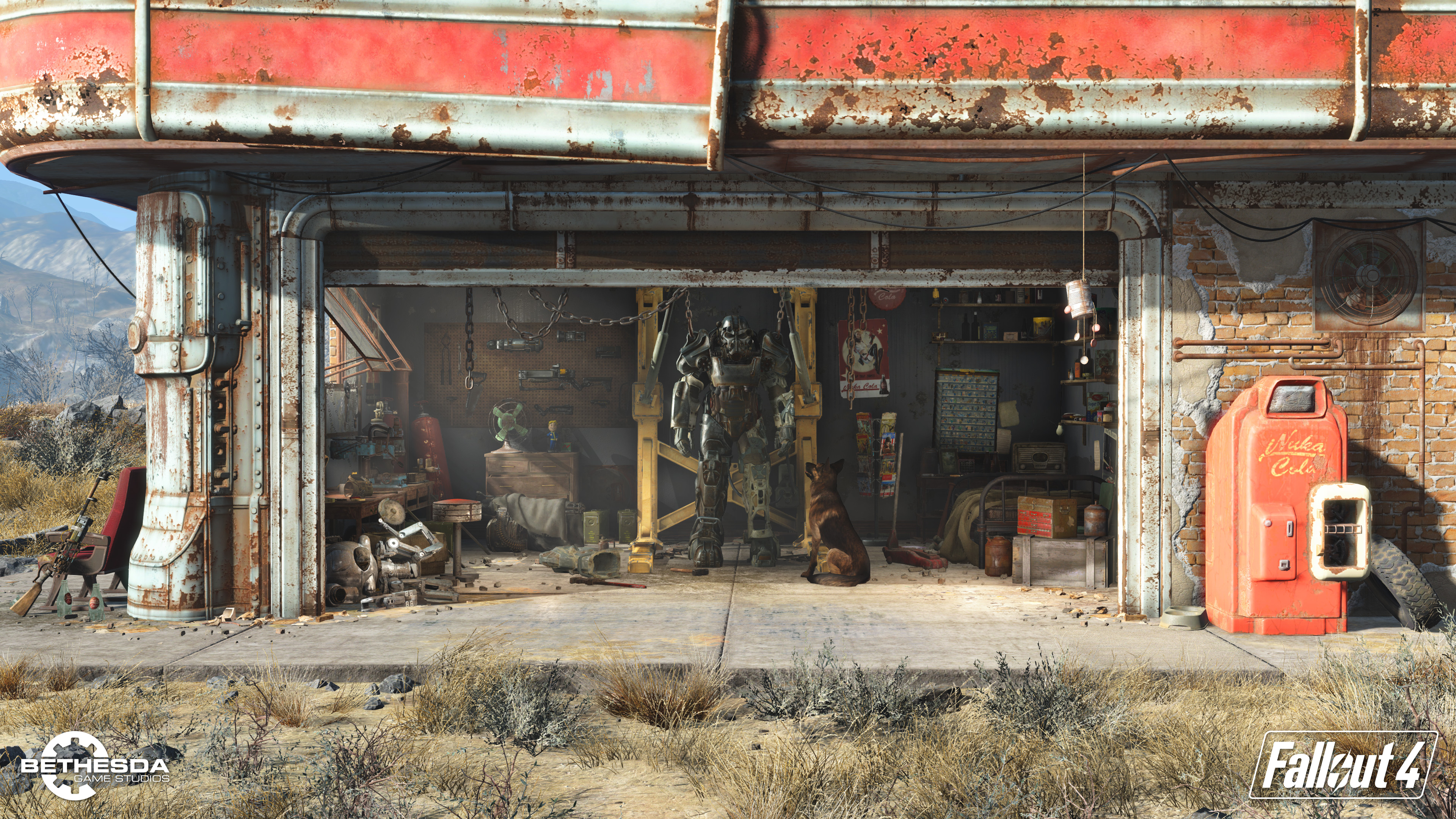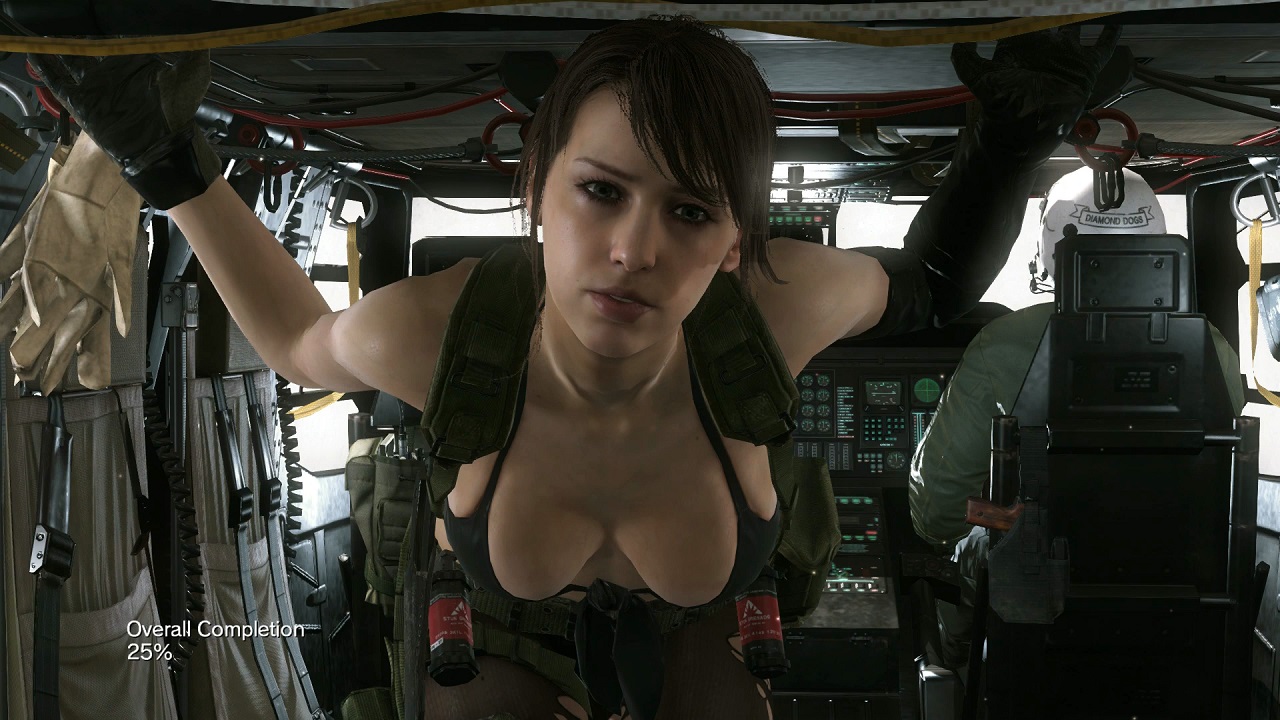 |
| Bethesda's 2015 Release, Fallout 4 |
I would define "Hype" as a sense of excitement for something that is near impossible to diminish with most details. Hype is typically a blind feeling that you feel regardless of what you should logically be seeing. I am very experienced in being "hyped." Fallout 4 released very recently, November of last year. To say that I was excited is an understatement. I was truly hyped for Fallout 4. I should have seen what was clearly there, a game with a sub-par dialogue choice system, jerky gunplay, and honestly, ugly graphics. But I didn't, all I saw was a a sequel to one of my favorite games of last generation, and it wasn't even crossing my mind that it could be anything less than spectacular. I played through it feverishly upon its release, and for the time that the hype still lasted, I didn't see any problems. After a couple weeks with it though, and after I had begun to see less than I hoped for, I noticed that there was a list of problems that, quite frankly, are unacceptable in a 2015 AAA release.
Hype can easily be used by game publishers to sell copies. This is not all bad, there have been a couple of cases that I have experienced where this could actually be seen as a good thing, but the bad is very bad, and can be just as deceitful as directly lying about the game.
 |
| Nintendo's Latest entry in the Super Smash Bros. series, released in 2014 for both the Wii U and 3DS |
Another game I am guilty of being blindly hyped for was the two latest games in the Super Smash Bros. series. This was a series that I have had a long history with. I had played every entry before it and loved every minute (at the time of its relevance) and it was always the game of choice when my friends and I would have any sort of gathering. There was rarely anything less than a great time had. The hype for this game likely sold just as many copies as those who were influenced by marketing. Fans of the past entries were going to buy this game when it released. It was guaranteed. I'd like to say this is a bad thing, but I was one of the many people that would go to buy both versions on release date without a second thought.
This could be a bad thing, however, Nintendo did the most respectable thing they could. The game had a very long development cycle, and they made sure that the game they released was of the highest quality and with the most fun value that they could. They supplied post-launch DLC (and true post-launch DLC, not on-disc content locked behind a pay wall) to satisfy the truly dedicated fans. The game was arguably the best that they could possibly make. They just as easily could have just made a rushed sequel with little on the front of new content and just ride on the definite sales that the series' past would bring it, but they didn't, they made an excellent game to satisfy those that were a part of the games powerful hype.
 |
| EA's Star Wars Battlefront |
As is with any game-selling practice, not all publishers are going to use hype in a respectable manner. One recent example was the release of Star Wars Battlefront, a reboot of the Battlefront series that was popular 2 console generations ago. The series has always been somewhat heavy on the multiplayer aspect of the game more so than any other part, but the latest entry has decided to completely eliminate any sort of Single-Player campaign. Not only that, but many people who purchased the game complained that the game lacked a proper amount of content upon release. In the case of certain games, such as Nintendo's Splatoon, this wouldn't be a problem, as it is easily solved by free DLC. Battlefront did not take that route though, they instead chose to release a season pass, one with an unheard of until this point price tag of $50. Many argue that to truly get the entire game and to be a part of the excitement of the game upon its initial release date, you would have to shell out a total of $110.
Even with all of that content you have after spending over 100 dollars, many people still complain that the game feels rather bare. A graphically gorgeous game with the Star Wars name does not automatically mean a great game. Yet, this game sold over 12 million units so far. That number, no matter how you look at it, is staggering. That is an insane amount of money, especially considering all the seemingly apparent flaws that were discussed above. In case what I have hinted at throughout has not already led you to a conclusion, it is somewhat obvious where the sales are coming from. EA constantly appealed to people's inflated hype and nostalgia for the entire Star Wars brand (Nostalgia is an entire other topic for another day though). People loved the previous Battlefront games, and they became hugely excited by the announcement of a sequel/reboot in 2013. For a long time, all that fans had to go off of was a cinematic teaser, yet so many people would defend the game before they had even seen it. These people were far from scarce, there was a huge number of them, enough to sell 12 million units regardless of the mixed reception. EA knew that they had a less than great game, so instead of stopping and trying to build it into a truly great product, they released their arguably unfinished game, knowing that hyped consumers would blindly purchase it. This is a very shady practice, one that many publishers have used in the past, and one that they will continue to be used in the future if consumers don't learn from the mistakes of their past.
 |
| Naughty Dog's Upcoming Uncharted 4: A Thief's End |
So, do I recommend that we eliminate our hype as a whole? Absolutely not. I am a gamer first before I am a writer, so I take part in hype as much as a lot of consumers. I love the feeling of being hyped for an upcoming game, and it makes the wait for new games far more exciting. It also makes the enjoyment of a new game even more enjoyable if it lives up to or surpasses your hopes. I am looking forward to a number of games in the coming months such as Fire Emblem Fates and Uncharted 4. The key is not to stop being hyped, but to allow yourself to be logical at the same time. I am hyped for both of the games I listed above because their developers, Intelligent Systems and Naughty Dog respectively, both have a tremendous track record of top-quality games, and both are entries in series' with strong pasts that are nearly impossible to do wrong with their level of establishment. I still make sure that I don't allow myself to get hyped for games I don't have this level of certainty about.
There are a couple actions that you can quite easily take to avoid dangerous blind hype. For one, do not preorder games. Publishers' use of the preorder has become quite sketchy lately. They encourage customers to give them money in advanced and promise to buy the game before they can be sure of its quality, with the only thing they are really offering being a small piece of downloadable content with no tangible monetary value. Waiting until the actual day of release to go out and purchase the game gives you time to look at the reception and decide if the game is worth your money, and if enough people took this action, it would deter publishers from continuing in their shady business practices.
So I encourage you to continue being hyped for the latest entries in your favorite series' or the newest IP from your favorite developer, just do so with an ounce of objectivity, see through publishers' reliance on hype for sales and decide if you buy a game based on whether you think you will enjoy it first and foremost.
What games are you hyped for in 2016? Are you guilty of sometimes being blinded by your hype for a game? Let me know in the comments or however you see fit.
Have a tremendous day.












